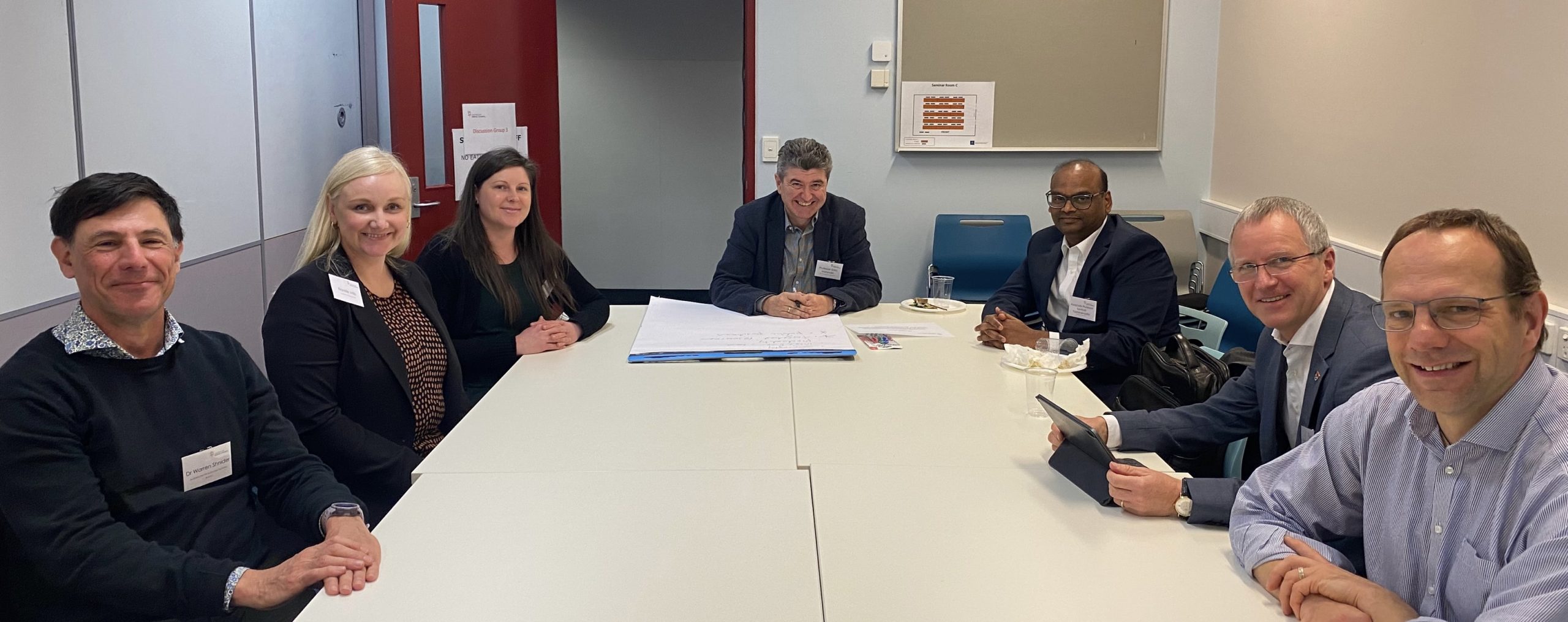ACODS and ADC meet at the Melbourne Dental School
On Sunday 25 September 2022, more than 30 representatives from across the Australian dental sector met for a roundtable discussion to consider the future of the Dental Academic Workforce.

“In its role as the accreditation authority for dental professions in Australia, the Australian Dental Council (ADC) has observed increased student to staff ratios, an increase in the casualisation of staff, and challenges with recruiting academic staff, particularly at senior levels”, said ADC Chair, Accreditation Committee, Conjoint Associate Professor Deborah Cockrell.
“All these issues may impact the ability for dental students to acquire the knowledge and skills required to practise safely.”
“Strategic change is desired to ensure the sustainability of dental programs in Australia and to equip dental schools with resources to prepare graduates to meet the current and future needs of the Australian population,” she added.
In this context, the ADC, in partnership with the Australian Dental Association (ADA), the Dental Board of Australia (DBA) and the Australasian Council of Dental Schools (ACODS), initiated a roundtable discussion to start addressing key issues for the dental academic workforce and identify solutions.
Expert speakers presented on the state of funding for research, a global perspective on the dental academic workforce, and the results of a survey of current dental program academic and professional staff and dental school leaders highlighting issues with recruitment and retention of academic staff, job security, workload and dental academic career pathways.
Delegates then participated in roundtable discussion groups to identify short- and long-term solutions to the identified challenges.
The ADC Chair, Accreditation Committee, Associate Professor Deborah Cockrell said, “There was a real sense of commitment in collaborating to address the critical issue of a sustainable dental academic workforce.”
“Decision makers from across the dental sector dedicated a Sunday to examining these issues, demonstrating not only the high priority all stakeholders place on the dental academic workforce, but also that the issue is best addressed together.”
Chair, DBA, Dr Murray Thomas said, “High quality dental education in Australia will lead to better access and health outcomes for all Australians. The DBA is committed to ensuring any unnecessary regulatory barriers are identified and removed if they do not impact public safety.”
Key to the success of the Roundtable was the contribution of the dental profession representatives, including the ADA (Federal and State/Territory branches), DBA, Indigenous Dental Association Australia (IDAA), the dental specialty societies and academies and the RACDS. It was noted that, for a small profession, many formal and informal groups of interest attended the discussions.
Dr Andrew Gikas represented the ADA on the planning committee said, “The roundtable was an opportunity for the profession to work collaboratively and come together to learn more about the divide that exists between private practice and academia in dentistry and how this could be bridged. The ADA has a significant role to play in supporting its members to consider an academic career pathway given the importance of educating our future colleagues and ensuring that the oral health needs of the Australian public can be met.”
These comments were reinforced by Australasian Council of Dental Schools (ACODS). Professor Alastair Sloan, Head of School at Melbourne University, declared the importance of ACODS members in, “leading the discussion and for shared advocacy across the dental schools and the profession”. These comments were reinforced by Professor Richard Logan, Dean and Head of School, Adelaide Dental School, and Professor Heiko Spallek, Dean and Head of School, University of Sydney, School of Dentistry in their participation on a panel discussion.
At the conclusion of the Roundtable, it was noted that there was significant agreement in the identified solutions for the short and long term across the discussion groups.
All stakeholders are actively engaged and committed to understanding their roles – as individuals and organisations – in contributing to a sustainable and high quality dental academic workforce. It was acknowledged by all in attendance that this is a shared responsibility, and that the greatest success will come from working collaboratively.